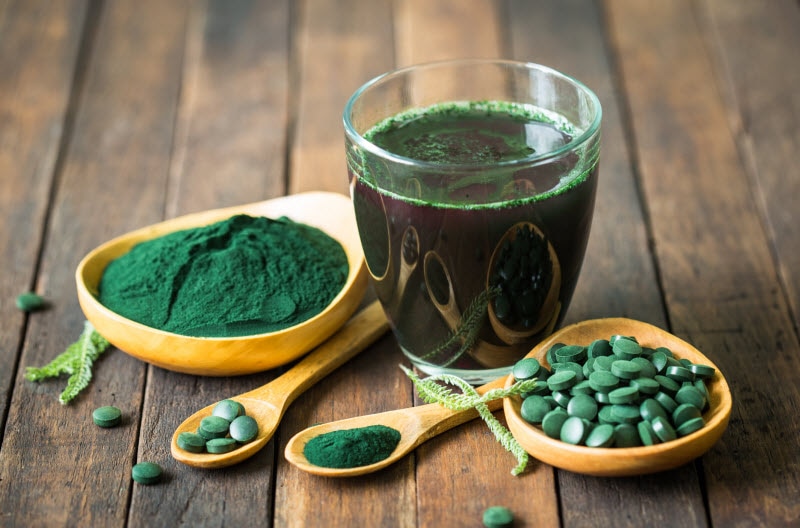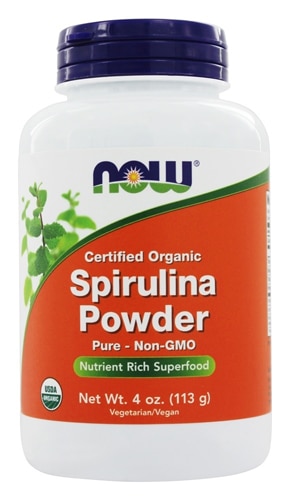[vc_row][vc_column][vc_column_text]The word “
sustainability” continues to enter the hearts and minds of the 8 billion people who share our planet.
As
UCLA explains it, sustainability “presumes that resources are finite, and should be used conservatively and wisely with a view to long-term priorities and consequences of the ways in which resources are used. In simplest terms, sustainability is about our children and our grandchildren, and the world we will leave them.”

Today, sustainability increasingly affects our buying decisions. In fact, two-thirds of Americans are willing to pay more for sustainable products versus products from less sustainable competitors, according to a
2022 survey commissioned by GreenPrint, an environmental technology company.
Not surprisingly, these products include
nutrition supplements. A growing number of companies are incorporating sustainability into how they produce and sell supplements. And a growing number of consumers are shopping for sustainable supplements.
What are sustainable supplements?
Sustainable supplements,
according to Nutrition Industry Executive magazine, adhere to sustainability standards in terms of sourcing raw materials, processing ingredients, creating vegan and vegetarian products, packaging supplements, reducing energy use and waste, and more. While a sustainable supplement may not check every sustainability box, its maker and seller strives to reach several sustainability benchmarks.
Courtesy of Nutrition Industry Executive, here are several examples of sustainability as it relates to nutrition supplements:
- Sourcing ingredients like probiotics directly from naturally fermented plants rather than isolating them from milk (which, of course, is not vegan but is vegetarian). This reduces harmful carbon dioxide emissions from dairy cows.
- Turning to marine-based ingredients, such as algae. These ingredients can be a sustainable option as long as they’re farmed and cultivated to decrease environmental and ecological harm.
- Processing supplements using methods such as cold-pressing, dehydration, evaporation, filtering, grinding, infusing and water distilling. This avoids relying on chemical-extraction processing.
- Making capsules and packages with sustainable materials. For instance, some capsules can be manufactured from a naturally occurring carbohydrate called polysaccharide that’s generated through fermentation of tapioca. About three-fourths of supplement packaging contains plastic.
- Manufacturing supplements at energy-efficient facilities. For example, a facility might operate only on solar power. This cuts down on carbon dioxide emissions.
How common are sustainable supplements?
It’s hard to pin down how widely available sustainable supplements are.
Luxury magazine Luxiders
points out that rising consumer awareness about environmental matters has prompted many supplement companies to change their production methods. However, the publication adds, “it is difficult to know when a supplement is sustainable.”
The SustainablyChic website does offer some
tips for helping identify sustainable supplements:
- Look for USDA Organic or Non-GMO Project certifications.
- Opt for supplements sold in containers made of glass, post-consumer recyclable plastic or compostable pouches.
- Shop for supplements without fillers, synthetic ingredients, additives, colorants and additional sweeteners.
- Search for supplements whose purity and potency have undergone third-party testing.
The
Sustainable Living Association bemoans the fact that there’s still “a long way to go” in decreasing the environmental impact of the supplement industry.
“Consumers can do their part by holding manufacturers to higher sustainability standards and using their dollars to vote against unsustainable products,” the association says.
Sustainable omega-3 supplements
Among the sustainable supplements that today’s consumers are snapping up are
omega-3 supplements.
The Sustainable Living Association notes that if you want to take omega-3 supplements “without destroying the environment,” you should choose supplements that derive
omega-3 fatty acids from sources such as algae, flaxseed oil and perilla oil instead of from traditional fish oil.
In 2022, VAXA Technologies
rolled out a line of vegan, algae-based omega-3 supplements under the
Örlö Nutrition brand name.
Aside from being produced with sustainably grown algae, the
Örlö Nutrition supplements are sold in reusable, recyclable glass bottles that can be refilled every 30 days. Plus, VAXA doesn’t use secondary packaging for the bottles and makes its shipping materials with post-consumer recycled content. The shipping materials are printed with algae ink rather than soy- or petroleum-based ink.
The Sustainable Living Association emphasizes that high demand for omega-3 and other fish oil supplements has caused overfishing of species that now are classified as endangered. Furthermore, overfishing results in the overgrowth of algae, which can harm coral reefs.
It is possible, though, to find sustainable omega-3 supplements that contain oil from fish.
In 2021, a company called True Grace
introduced omega-3 supplements made from sustainably sourced, wild-caught Alaskan pollock. The company follows a system of holistic farming called “
regenerative agriculture” that it says “rehabilitates the entire ecosystem and enhances natural resources rather than depleting them.”
Sustainable vegan supplements
Another type of sustainable supplement that consumers are searching for is
vegan supplements.
Terraseed, a maker of vegan supplements with plant-friendly packaging,
believes it’s critical for vegans to choose vitamins that not only are animal-free but also are made sustainability and packaged with renewable materials. An estimated
2.3 billion supplement bottles, most of them made of plastic, are sold each year.
“If you’ve chosen to embrace a plant-based diet because you want to protect the planet and all of its inhabitants, it’s important to understand how and where supplements are made so that you can make a compassionate choice,” Terraseed says.[/vc_column_text][/vc_column][/vc_row][vc_row][vc_column][vc_text_separator title="Featured Products" border_width="2"][vc_row_inner equal_height="yes" content_placement="middle" gap="35"][vc_column_inner width="1/3"][vc_single_image image="164634" img_size="full" alignment="center" onclick="custom_link" img_link_target="_blank" css=".vc_custom_1674932537028{padding-right: 7% !important;padding-left: 7% !important;}" link="https://www.vitacost.com/vegan"][/vc_column_inner][vc_column_inner width="1/3"][vc_single_image image="164635" img_size="full" alignment="center" onclick="custom_link" img_link_target="_blank" css=".vc_custom_1674932554330{padding-right: 7% !important;padding-left: 7% !important;}" link="https://www.vitacost.com/zenwise-vegan-omega-3"][/vc_column_inner][vc_column_inner width="1/3"][vc_single_image image="164633" img_size="full" alignment="center" onclick="custom_link" img_link_target="_blank" css=".vc_custom_1674932571429{padding-right: 7% !important;padding-left: 7% !important;}" link="https://www.vitacost.com/deva-vegan-multivitamin-mineral-tiny-tablets"][/vc_column_inner][/vc_row_inner][/vc_column][/vc_row]
 Today, sustainability increasingly affects our buying decisions. In fact, two-thirds of Americans are willing to pay more for sustainable products versus products from less sustainable competitors, according to a 2022 survey commissioned by GreenPrint, an environmental technology company.
Not surprisingly, these products include nutrition supplements. A growing number of companies are incorporating sustainability into how they produce and sell supplements. And a growing number of consumers are shopping for sustainable supplements.
Today, sustainability increasingly affects our buying decisions. In fact, two-thirds of Americans are willing to pay more for sustainable products versus products from less sustainable competitors, according to a 2022 survey commissioned by GreenPrint, an environmental technology company.
Not surprisingly, these products include nutrition supplements. A growing number of companies are incorporating sustainability into how they produce and sell supplements. And a growing number of consumers are shopping for sustainable supplements.



